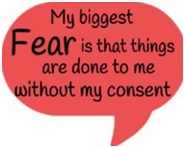Some months ago, in what now feels like a different life, a golden oldie on the radio stirred emotions which inspired me to put pen to paper…..
“Imagine all the people, living life in peace.
You may say I’m a dreamer, but I’m not the only one.
I hope some day you’ll join us, and the world will be as one…”
World peace, wouldn’t that be awesome, but unachievable? What about starting small, what about peace in our own organisation…do we have that? If not, why not?
I am hugely privileged to now be more involved with colleagues across specialties and across professions. I see many teams who work well together with individuals caring for and supporting each other. Yes, we all have difficulties that crop up but that can usually be talked through and solutions found.
However, I am saddened to see some individuals who are unhappy, feel that they are being bullied, dread being on shift with certain colleagues, become unwell. I also notice others who do not realise what impact a word, a comment, a frown, a gesture can have on those around them.
Why can it sometimes be difficult for us to be nice??
Have you ever snapped at someone, raised your voice, talked over someone, rushed a conversation that was important to someone, didn’t make the effort to say good morning, didn’t thank or congratulate someone for doing a great job, made someone feel belittled, unimportant, less valued?
I have, probably many times, for which I would like to hugely apologise to each and every one.
I ask myself why…pressures, frustration, my own worries and insecurities, being unaware of the impact of my actions.
A quote that I saw recently rings true..
People will forget what I said
People will forget what I did
But people will always remember how I made them feel
We work in a wonderful organisation but there are many pressures and stresses. The last thing that we need is to be fighting with each other. Not only does fighting and unpleasantness make life miserable for ourselves, but ultimately affects patient care..”civility saves lives”. ”
This was written and parked, and the world changed. In the last few months we have coped with our lives being turned upside down. We have worked together with incredible energy, understanding, innovation and support. Now we are reflecting on our experiences and learning and planning the new world ahead with some uncertainty and anxiety. Let’s continue to reflect on our own behaviour, support each other, and be nice. We need each other more than ever before in this strange uncertain world.
Never has this been more true for me personally than in the last few weeks when my world was further rocked by a tragic family loss. The kindness and support shown by colleagues was wonderful and got me through the challenging and deeply sad times. Thank you all so much.
Whatever is ahead of us, I know we will be ok if we are kind to each other, and ourselves.
I don’t need to imagine!

Heather Currie is an Obstetrician and Gynaecologist and Associate Medical Director for Acute and Diagnostics and Women and Childrens at NHS Dumfries and Galloway



 When our multidisciplinary team was set up to create a poster and video helping to highlight the challenges of communicating in a mask, little did we know that this information would be so important as the weeks were to unfold…. As of Monday the 29th of June it has become mandatory for everyone to wear masks in clinical settings. The challenges that this poses to staff, patients and visitors cannot be underestimated.
When our multidisciplinary team was set up to create a poster and video helping to highlight the challenges of communicating in a mask, little did we know that this information would be so important as the weeks were to unfold…. As of Monday the 29th of June it has become mandatory for everyone to wear masks in clinical settings. The challenges that this poses to staff, patients and visitors cannot be underestimated. it’s hard to hear, and hard to be heard in a mask. Shouting is bad for the voice and tiring, miscommunication can be catastrophic. You forget to hydrate and eat. You can no longer share a smile down the corridor, it feels isolating, communication becomes perfunctory, you lose the banter. It’s hot, claustrophobic… chafing.
it’s hard to hear, and hard to be heard in a mask. Shouting is bad for the voice and tiring, miscommunication can be catastrophic. You forget to hydrate and eat. You can no longer share a smile down the corridor, it feels isolating, communication becomes perfunctory, you lose the banter. It’s hot, claustrophobic… chafing. “Take your breaks, our manager bought everyone in the care home ice lollies in the heat to help us hydrate” “My hot flushes make it just unbearable in a mask but my manager’s been really good about letting me take a break”
“Take your breaks, our manager bought everyone in the care home ice lollies in the heat to help us hydrate” “My hot flushes make it just unbearable in a mask but my manager’s been really good about letting me take a break”
 Something we’ve all been thinking about in speech therapy is how this will affect people who already experience communication difficulties, for example someone who has had a stroke, head injury or head and neck cancer, or someone living with a progressive disease such as motor neuron disease (MND), Parkinson’s or dementia.
Something we’ve all been thinking about in speech therapy is how this will affect people who already experience communication difficulties, for example someone who has had a stroke, head injury or head and neck cancer, or someone living with a progressive disease such as motor neuron disease (MND), Parkinson’s or dementia. Talking on the phone may be particularly difficult, so trying to stay connected to loved ones in this pandemic can be an additional challenge – trying to set up a video call for someone might make all the difference for them. If someone has a new communication difficulty they may well be confused and scared by this change and there may be a bit more trial and error to what helps and what doesn’t, but as a starting point – use short, simple sentences; emphasize, repeat or write down key words; use gestures and relevant objects/pictures to support what you are talking about, even drawing something can give valuable extra information.
Talking on the phone may be particularly difficult, so trying to stay connected to loved ones in this pandemic can be an additional challenge – trying to set up a video call for someone might make all the difference for them. If someone has a new communication difficulty they may well be confused and scared by this change and there may be a bit more trial and error to what helps and what doesn’t, but as a starting point – use short, simple sentences; emphasize, repeat or write down key words; use gestures and relevant objects/pictures to support what you are talking about, even drawing something can give valuable extra information. Many people who are deaf or experience hearing loss rely heavily on visual cues to be able to communicate accurately and effectively. For those who use BSL it’s crucial to be able to see lip patterns and facial expressions – it’s all part of the language. The increased use of masks therefore presents a significant barrier around communication. Clear visors may be the only option in these cases.
Many people who are deaf or experience hearing loss rely heavily on visual cues to be able to communicate accurately and effectively. For those who use BSL it’s crucial to be able to see lip patterns and facial expressions – it’s all part of the language. The increased use of masks therefore presents a significant barrier around communication. Clear visors may be the only option in these cases.  Public bodies have a legal obligation to ensure that they are meeting the needs of people who are deaf or who experience hearing loss. It is absolutely vital that we make the necessary reasonable adjustments when we are working with people with sensory loss. This is backed up by several pieces of legislation, including the Equality Act 2010 and the BSL (Scotland) Act 2015 but this should be more than just a legal duty though. The Board also now has access to online interpreting through Sign Language Interactions. A clinician could be speaking to a patient in a consulting room with and ipad or laptop nearby and on the screen, a BSL interpreter is interpreting what is being said into BSL.
Public bodies have a legal obligation to ensure that they are meeting the needs of people who are deaf or who experience hearing loss. It is absolutely vital that we make the necessary reasonable adjustments when we are working with people with sensory loss. This is backed up by several pieces of legislation, including the Equality Act 2010 and the BSL (Scotland) Act 2015 but this should be more than just a legal duty though. The Board also now has access to online interpreting through Sign Language Interactions. A clinician could be speaking to a patient in a consulting room with and ipad or laptop nearby and on the screen, a BSL interpreter is interpreting what is being said into BSL. Hopefully the hints in the poster have given you some tools to help overcome the significant challenges of communicating in a mask. We would like to acknowledge what a monumental task this is, and recognise that delivering excellent patient care while wearing PPE is very difficult. You are all heroes. Remember to take breaks, to keep hydrated and be kind to yourself.
Hopefully the hints in the poster have given you some tools to help overcome the significant challenges of communicating in a mask. We would like to acknowledge what a monumental task this is, and recognise that delivering excellent patient care while wearing PPE is very difficult. You are all heroes. Remember to take breaks, to keep hydrated and be kind to yourself.